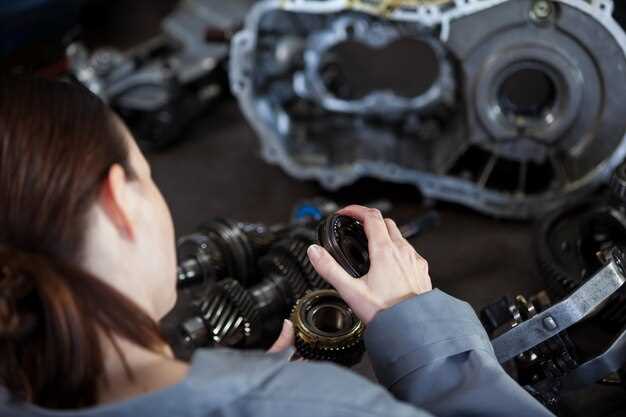How to Improve Your Fiat’s Engine Performance

If you own a Fiat, you are already part of a community that appreciates the blend of style and performance. However, to truly unlock the potential of your vehicle, tuning your engine can make a significant difference. With a few simple adjustments, you can experience improved horsepower, better fuel efficiency, and enhanced overall driving dynamics.
In this article, we will explore practical tips that can help you boost your Fiat’s engine performance without breaking the bank. From easy modifications to essential maintenance practices, these strategies are designed to maximize the effectiveness of your vehicle’s engineering. Whether you’re a seasoned car enthusiast or a casual driver looking to enhance your ride, these insights will provide valuable ways to achieve your performance goals.
By focusing on both tuning techniques and regular upkeep, you can ensure that your Fiat remains not only reliable but also fun to drive. Join us as we delve into the specifics of how you can get the most out of your engine and transform your driving experience.
Optimize Air Intake for Improved Acceleration

Enhancing your Fiat engine’s performance often begins with optimizing the air intake system. Proper tuning of the air intake can significantly improve acceleration by increasing the amount of air entering the engine. This process allows for better combustion, resulting in more power and responsiveness.
One of the first steps in optimizing the air intake is upgrading to a high-performance air filter. Standard filters can become restrictive over time, limiting airflow. By installing a high-flow air filter, you allow your engine to breathe better, enhancing overall performance.
Next, consider the design of the air intake system. A cold air intake can be particularly beneficial. This system draws cooler air from outside the engine bay, which is denser than warm air, leading to improved combustion efficiency. The cooler temperatures can translate to significant gains in horsepower and acceleration, especially during intense driving scenarios.
Additionally, ensure that all connections and piping in the intake system are secure and free of obstructions. Any leaks or restrictions can hinder airflow, reducing the effectiveness of your tuning efforts. Using smoother, larger diameter piping can help minimize turbulence and promote a steady flow of air to the engine.
Lastly, consider pairing your optimized air intake with a proper tuning of the engine management system. Many modern Fiats are equipped with ECU tuning capabilities that allow you to adjust fuel maps and timing to suit your new intake setup. This adjustment can maximize the benefits of increased airflow, further enhancing acceleration.
By focusing on these key areas–upgrading the air filter, installing a cold air intake, ensuring proper piping, and tuning your engine management system–you can significantly enhance your Fiat’s acceleration. These simple yet effective modifications will lead to a more responsive and enjoyable driving experience.
Upgrade Exhaust System to Boost Power Output

Upgrading your Fiat’s exhaust system is one of the most effective ways to enhance engine performance. The exhaust system plays a crucial role in managing the flow of gases expelled from the engine. By improving this flow, you can significantly increase power output and overall efficiency.
A performance exhaust system typically features larger diameter piping, which minimizes backpressure. This allows exhaust gases to exit the engine more freely, leading to quicker throttle response and improved engine tuning potential. When reducing restrictions in the exhaust system, you enable the engine to breathe better, which translates to greater horsepower and torque.
Another key benefit of an upgraded exhaust system is the potential for improved sound. Many enthusiasts appreciate a more aggressive exhaust note, which can enhance the driving experience. This auditory feedback often signals the increased performance capabilities of your Fiat.
When selecting a new exhaust system, consider options like cat-back systems, which replace the exhaust pipe from the catalytic converter to the rear. These systems typically include performance mufflers that contribute to both sound and efficiency improvements. Additionally, choosing materials like stainless steel can enhance durability and reduce the weight of the system, further benefiting engine performance.
Finally, pairing your exhaust upgrade with other tuning modifications, such as optimizing the engine management system, can yield even greater results. By adjusting fuel maps and ignition timing to match the more efficient exhaust flow, you can unlock your Fiat’s full performance potential.
Maintain Regular Engine Tune-Ups for Peak Efficiency
Regular engine tune-ups are essential for maximizing the performance of your Fiat. These service intervals are designed to ensure that your engine operates smoothly and efficiently, preventing potential issues before they become major problems. A well-tuned engine not only enhances performance but also improves fuel economy and reduces emissions.
Tuning your Fiat involves inspecting and adjusting various components to maintain optimal operation. This includes checking the spark plugs, ignition timing, air and fuel filters, and overall engine performance. When any of these components are out of balance, it can lead to reduced power and increased fuel consumption.
Neglecting regular tune-ups can result in poor engine performance. Minor adjustments during a tune-up can make a substantial difference, allowing your Fiat to run at peak efficiency. Ensure that you follow the manufacturer’s recommended service intervals, as sticking to these guidelines helps keep your engine in top shape.
In summary, maintaining regular engine tune-ups is vital for ensuring your Fiat performs at its best. Investing time and resources into proper tuning will lead to a more reliable, fuel-efficient vehicle that provides an enjoyable driving experience.



